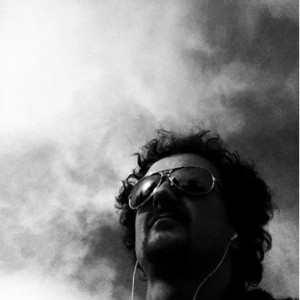
our regulators go off, and they blithely pass these laws, and they become part of the reality of our technological world. There are suddenly numbers that we aren’t allowed to write down on the Internet, programs we’re not allowed to publish, and all it takes to make legitimate material disappear from the Internet is to say “that? That infringes copyright.” It fails to attain the actual goal of the regulation; it doesn’t stop people from violating copyright, but it bears a kind of superficial resemblance to copyright enforcement — it satisfies the security syllogism: “something must be done, I am doing something, something has been done.” And thus any failures that arise can be blamed on the idea that the regulation doesn’t go far enough, rather than the idea that it was flawed from the outset.
As a member of the Walkman generation, I have made peace with the fact that I will require a hearing aid long before I die, and of course, it won’t be a hearing aid, it will be a computer I put in my body. So when I get into a car — a computer I put my body into — with my hearing aid — a computer I put inside my body — I want to know that these technologies are not designed to keep secrets from me, and to prevent me from terminating processes on them that work against my interests.
Excerpt from The Coming War on General Purpose Computing
I have been using my blog more and more as a locker for media that is important to me, linking to the original while taking a copy and retaining it here at networkeffects.ca. I have resolved to do this more as I find increasing frequency of link rot in my bookmarks and RSS feeds – most notably within MP3 blogs. This talk is over 2 years old and is all over the internet … but what if it was pruned by a swath of ToS takedowns or another raid? I keep returning to this talk to reflect on how these conditions impact my kids so I’m doing my part to ensure this important talk remains downloadable, geo-block-free, & DRM-free and will be making an effort to do more of this here.
What prompted me to return to this talk? I listened to the CBC Spark episode The Digital Skills Divide with Anabel Quan-Haase. The research referred to in this episode noted how the rise in popularity of smartphones has negatively impacted digital literacy and skills in youth. This notion of the digital divide isn’t simply about information access, it also considers how increasingly the personal computing platforms we use are black boxed and app-stored. This move away from general purpose platforms is impacting digital literacies and running counter to what we are trying to achieve as educators. Ababel says,
We need to think of children not just as users of information and consumers, but rather we need to think of them as being the creators and developers of what the internet of tomorrow will be. For that, they’ll need a wide range of skills that are a combination of the hard and soft skills that are so important for young people to learn.
Luckily there is pushback to be found online like Team DTLT‘s Domain of One’s Own and the diversification of maker culture – putting more general purpose computing back into the hands of not just users, but learners and creators. More on this topic also at The Coming Civil War over General Purpose Computing.
The Coming War on General Computation [mp3]
[audio: https://dl.dropboxusercontent.com/u/2251996/The_coming_war_on_general_computation.mp3]
